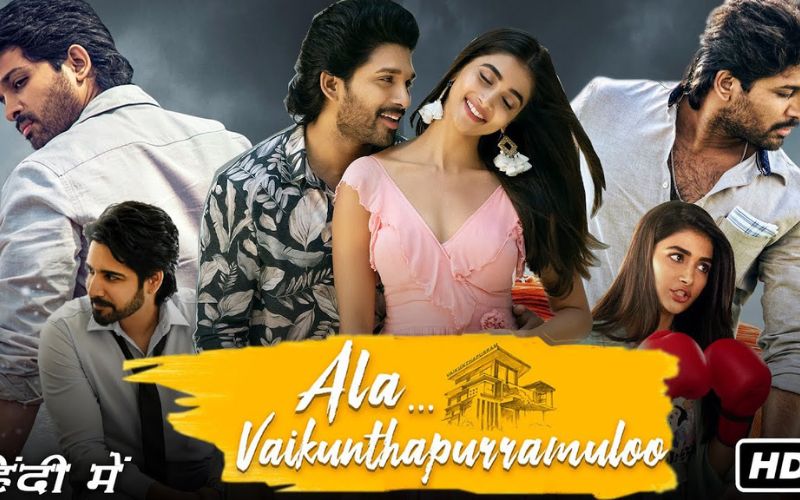“Ala Vaikunthapurramuloo,” directed by Trivikram Srinivas and starring Allu Arjun and Pooja Hegde, has emerged as a cinematic phenomenon in Indian cinema. Released in January 2020, this Telugu-language action-drama film captivated audiences with its engaging narrative, stellar performances, and memorable music. However, like many popular films, “Ala Vaikunthapurramuloo” has faced challenges related to unauthorized distribution, particularly through online platforms like Mp4moviez. This article explores the film’s significance, the ethical and legal concerns surrounding illegal downloads, and the broader implications for the entertainment industry.
The Allure of “Ala Vaikunthapurramuloo”
“Ala Vaikunthapurramuloo” tells the story of Bantu, played by Allu Arjun, a middle-class man who discovers he is the biological son of a wealthy businessman. The film intricately weaves themes of family, identity, and destiny, offering a mix of humor, emotion, and action that appeals to a wide audience. Allu Arjun’s charismatic performance, along with Pooja Hegde’s portrayal of the female lead, added to the film’s appeal.
The movie‘s success was further bolstered by its music, composed by S. Thaman. Songs like “Butta Bomma” and “Samajavaragamana” became instant hits, contributing to the film’s popularity and cultural impact. The choreography, vibrant visuals, and engaging storyline made “Ala Vaikunthapurramuloo” not just a box office success but also a critical darling, earning praise for its entertainment value and production quality.
The Rise of Illegal Downloads
Despite the success and availability of “Ala Vaikunthapurramuloo” through legitimate channels, the movie has been widely available on illegal platforms such as Mp4moviez. These websites offer unauthorized downloads of the film, often in multiple languages, including Hindi, to cater to a broader audience. While seemingly convenient for viewers, this practice poses significant ethical and legal challenges.
Legal and Ethical Implications
- Copyright Infringement: Downloading or distributing copyrighted material without authorization is illegal in many countries, including India. “Ala Vaikunthapurramuloo” is protected by copyright laws, and sharing the movie through unauthorized means is a violation of these laws. Filmmakers invest considerable resources in producing films, and unauthorized distribution deprives them of rightful earnings.
- Impact on the Industry: The financial loss due to piracy can be substantial. It affects not just the filmmakers but also actors, crew members, and others involved in the production. Piracy undermines the revenue model of the industry, potentially affecting future productions and the livelihood of those working in cinema.
- Quality and Viewing Experience: Movies available on illegal platforms are often of lower quality, affecting the viewing experience. Additionally, these sites are known to be unsafe, potentially exposing users to malware and other cyber threats.
- Moral Considerations: Beyond the legal aspects, there is a moral argument against piracy. It involves consuming content without compensating those who created it. Just as one would not support theft in a physical store, consuming pirated content is akin to taking someone’s work without paying for it.
Alternatives to Illegal Downloads
For fans of “Ala Vaikunthapurramuloo” and other films, there are numerous legal ways to access content. Streaming platforms like Netflix, Amazon Prime, and Disney+ Hotstar offer a vast library of films and series. These platforms provide high-quality viewing experiences and contribute to the industry’s sustainability. Additionally, many films are available for rent or purchase on digital platforms, allowing viewers to support the creators directly.
The Role of the Audience
As consumers, audiences play a crucial role in the fight against piracy. By choosing legal channels to watch films, they support the industry and ensure that filmmakers can continue to produce high-quality content. It also sends a message that audiences value the work of artists and are willing to compensate them fairly.
Conclusion
“Ala Vaikunthapurramuloo” is more than just a film; it is a testament to the power of storytelling and the collaborative effort that goes into making a successful movie. The issues surrounding illegal downloads highlight the broader challenges facing the entertainment industry in the digital age. While the allure of free content can be strong, it is essential to consider the ethical and legal implications of piracy.
Supporting films through legal channels ensures that artists are compensated for their work and helps maintain the industry’s integrity and future viability. As audiences, we have a responsibility to make informed choices that reflect our respect for creative works and the people who bring them to life.
In the case of “Ala Vaikunthapurramuloo,” enjoying the film through legitimate means honors the effort and talent of all those involved in its creation, from the actors and directors to the technicians and support staff. As the digital landscape continues to evolve, so too must our understanding and respect for intellectual property, ensuring that future generations can enjoy the magic of cinema.



